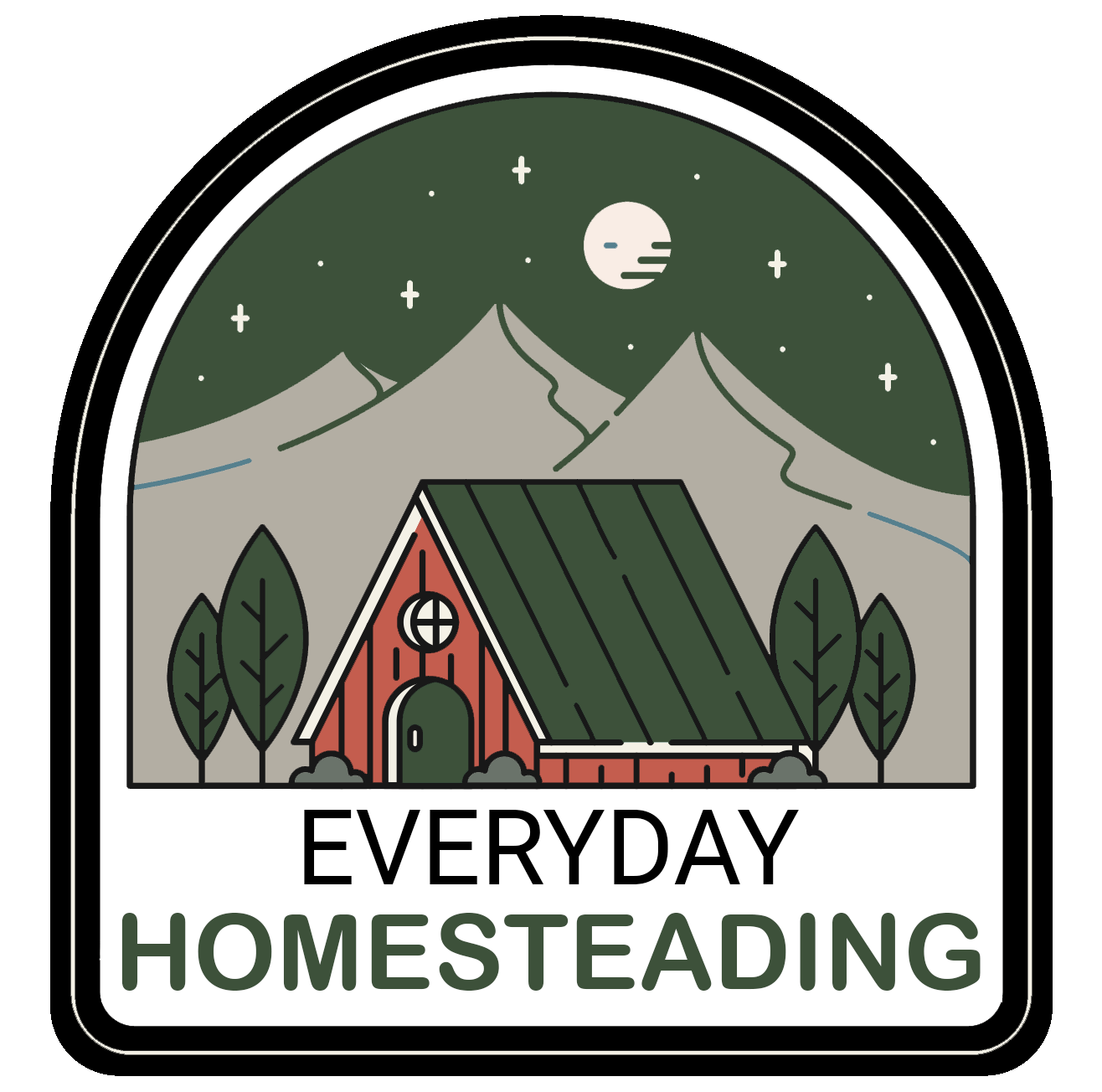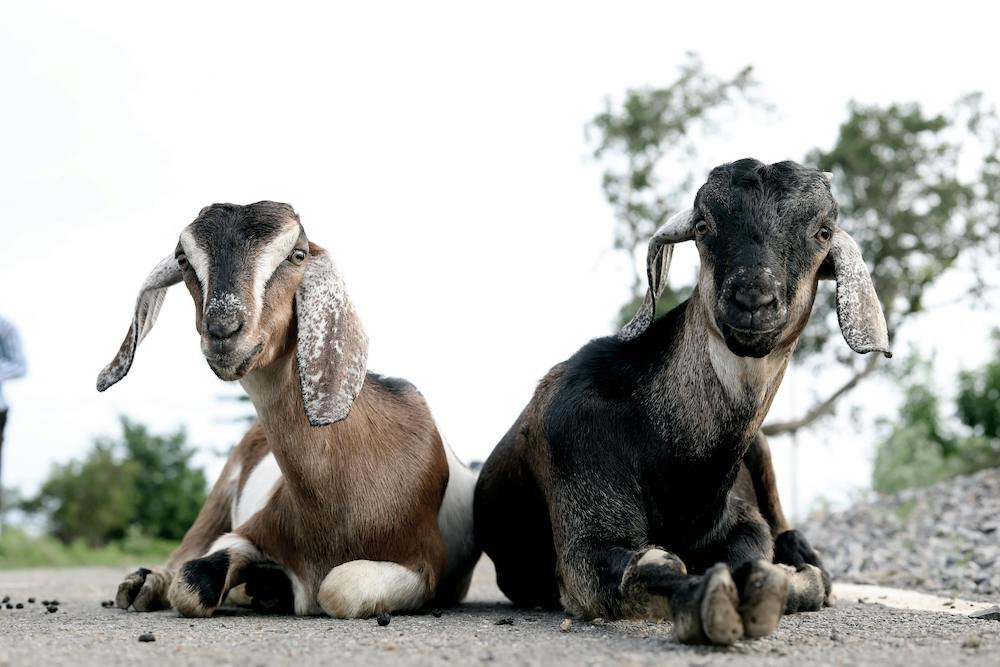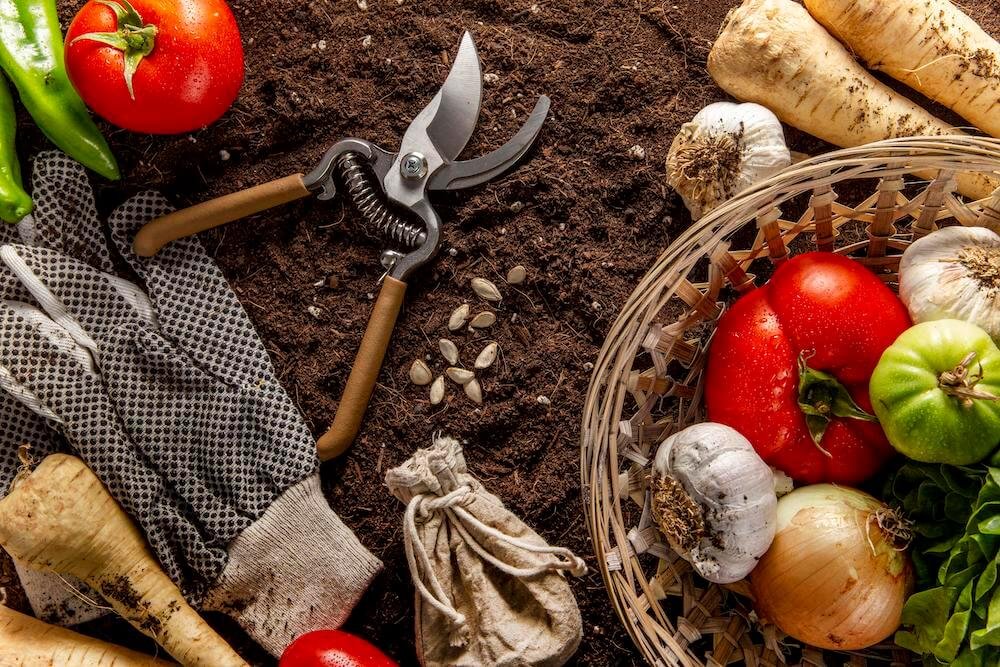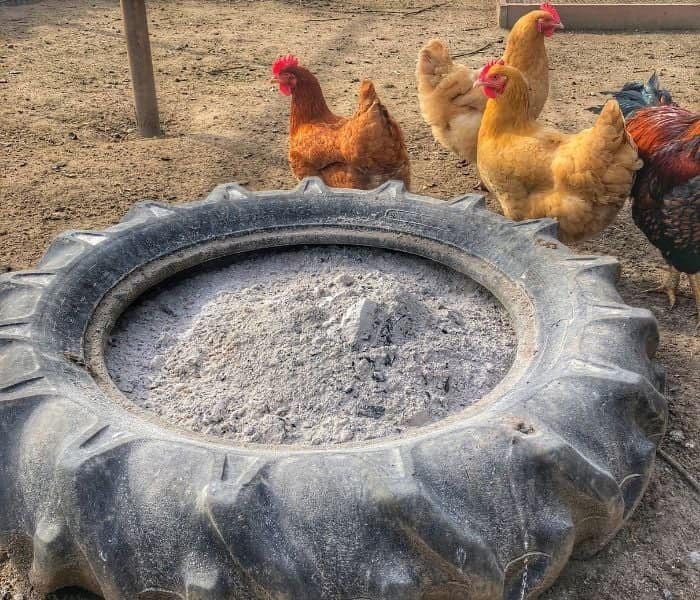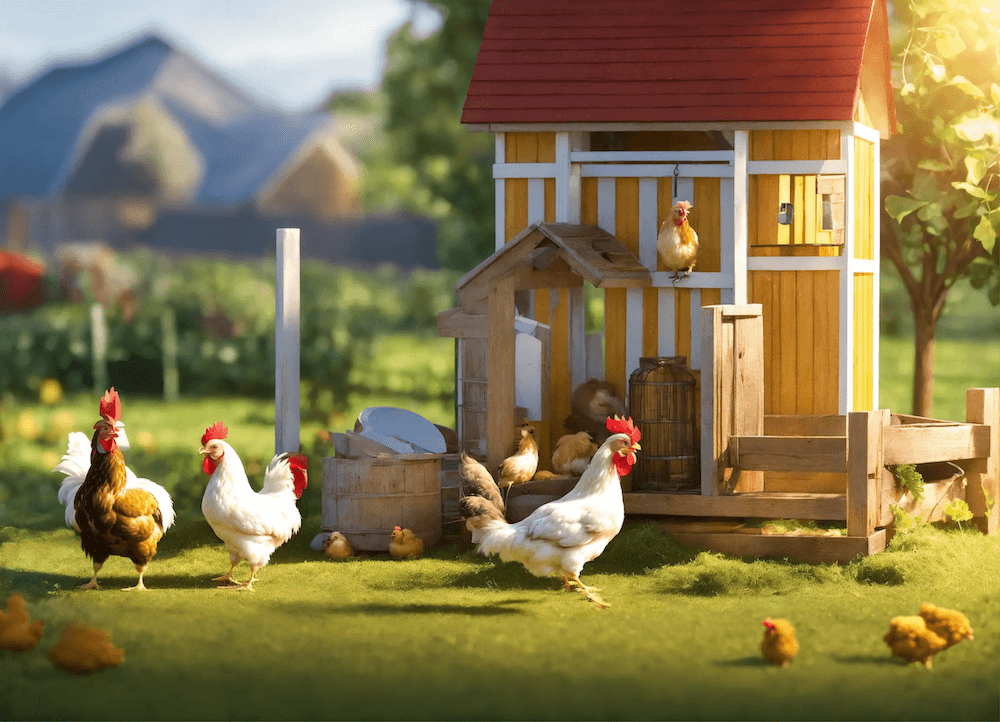Kune Kune Pigs: The Charming, Versatile Homestead Companion
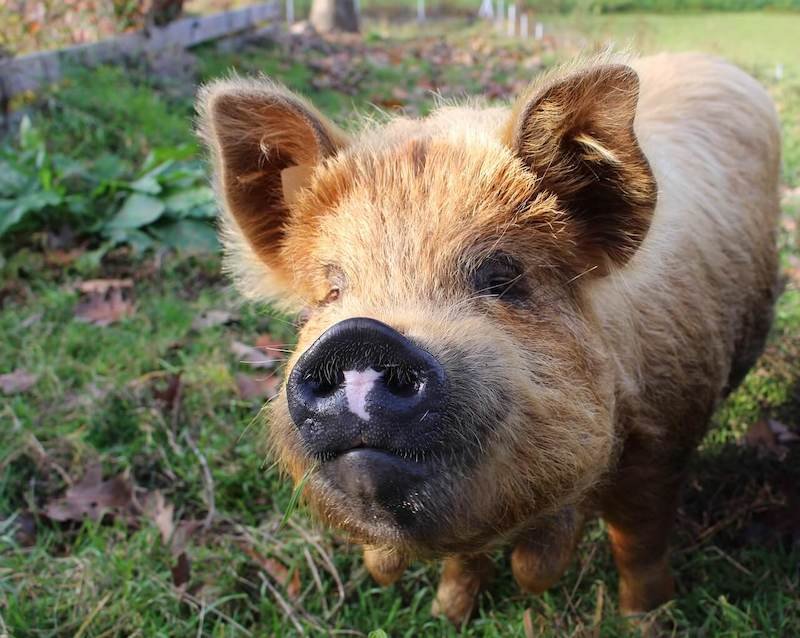
They may be small in stature, but Kune Kune pigs are making a big impact on the homesteading community. From their friendly personalities to their versatile uses, these charming creatures are proving that good things really do come in small packages.
With their friendly demeanor, compact size, and unique appearance, these pint-sized porkers are the perfect addition to any homestead, offering a host of benefits that make them an absolute must-have for those seeking a truly well-rounded farm experience.
In this comprehensive guide, I’ll share my insights on why the Kune Kune pig is the ultimate homestead companion, from their adaptability to their culinary and conservation uses. I’ll also provide you with all the information you need to successfully incorporate these charming creatures into your own homestead, including tips on housing, feeding, and caring for your porcine pals. So, whether you’re a seasoned homesteader or a newcomer to the world of pig-keeping, read on to discover why the Kune Kune should be your next homestead addition!
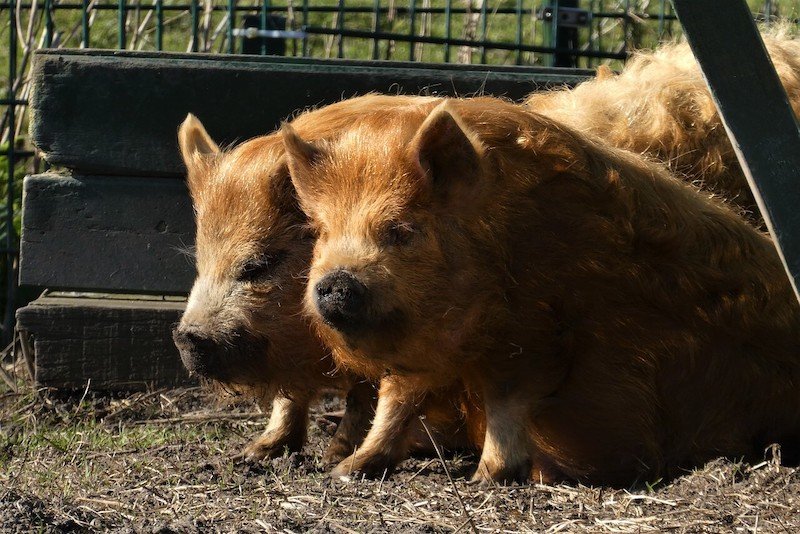
The Kune Kune Pig: A Breed Overview
The Kune Kune pig (pronounced “kooh-nee kooh-nee”) is a small, heritage breed that originated in New Zealand. Known for their friendly, docile temperament and distinctive appearance, Kune Kunes are quickly becoming a favorite among homesteaders and small-scale farmers alike.
One of the most striking features of the Kune Kune is their compact size, with most adults standing no taller than 28 inches at the shoulder and weighing in at a mere 300-400 pounds. This makes them ideal for homesteads with limited space, as they can be easily accommodated in a small barn or even a large pen. Their diminutive stature also makes them a breeze to handle, with no need for heavy equipment or specialized facilities.
But the Kune Kune is more than just a pretty face – these pigs are also known for their exceptional foraging abilities and adaptability to a wide range of climates and environments. Whether you’re located in a temperate region or a subtropical zone, Kune Kunes can thrive, making them a versatile choice for homesteaders across the globe.
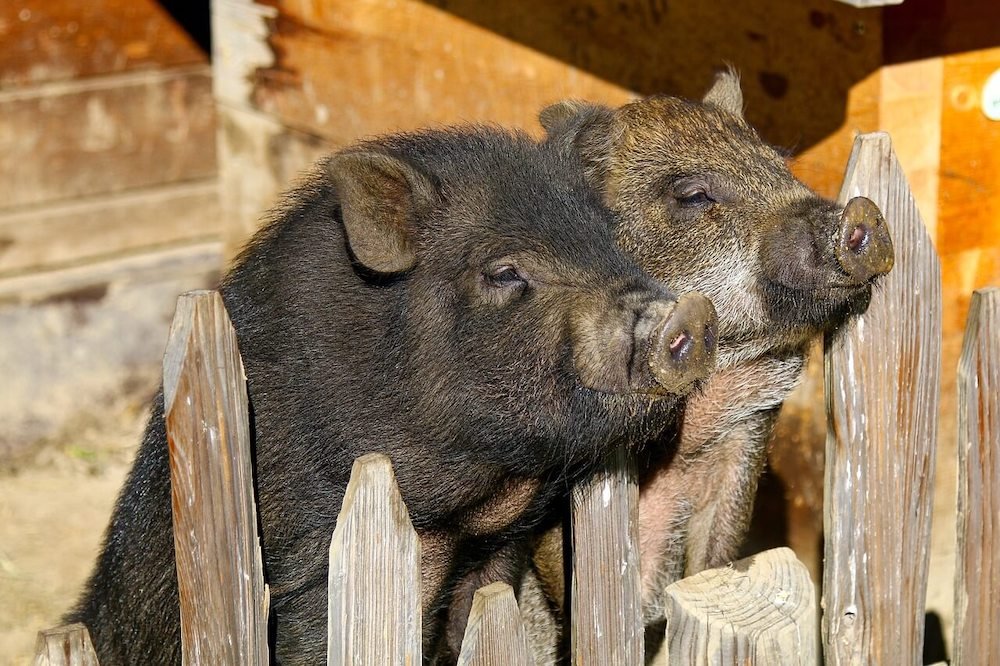
The Benefits of Raising Kune Kune Pigs
So, what makes the Kune Kune pig the ultimate homestead companion? Let’s explore some of the key benefits of adding these charming creatures to your farm:
Friendly Temperament
One of the most appealing aspects of the Kune Kune is their gentle, friendly nature. These pigs are known for their affectionate personalities and eagerness to interact with their human caretakers. They’re also great with children, making them a safe and enjoyable addition to any family homestead.
Excellent Foragers
Kune Kunes are natural foragers, with a keen ability to find and consume a wide variety of plants and vegetation. This makes them ideal for clearing overgrown areas, controlling weeds, and even managing invasive species. By allowing your Kune Kunes to graze on pasture, you can reduce your reliance on purchased feed and create a more self-sustaining system.
Versatile Meat Production
While Kune Kunes are often kept as pets or conservation grazers, they can also serve as a source of high-quality meat. Their small size and slow growth rate make them well-suited for small-scale production, with each pig providing enough meat for a family or small community. The meat is known for its excellent flavor and tenderness, making it a favorite among those who value quality over quantity.
Conservation and Preservation
As a heritage breed, Kune Kunes play an important role in preserving genetic diversity and protecting against the loss of rare livestock breeds. By raising Kune Kunes, you’re not only adding a unique and charming animal to your homestead but also contributing to the preservation of this important genetic resource.

Housing and Feeding Your Kune Kune Pigs
Now that you’re convinced of the many benefits of raising Kune Kune pigs, let’s dive into the practical aspects of caring for these delightful creatures. Here’s what you need to know about housing and feeding your Kune Kunes:
Housing
Kune Kunes are relatively low-maintenance when it comes to housing. They do well in a simple, well-ventilated barn or shed, with access to a fenced outdoor area for grazing and rooting. Be sure to provide a deep bedding of straw or wood shavings for comfort and insulation, and ensure that the shelter is predator-proof to keep your pigs safe.If you plan to allow your Kune Kunes to forage on pasture, be sure to provide a sturdy, well-maintained fence to keep them contained. Electric fencing is a popular choice, as it’s effective and easy to install.
Feeding
As omnivores, Kune Kunes can thrive on a diet of pasture, hay, and a balanced grain mix. Aim to provide a varied diet that includes plenty of fresh greens, vegetables, and even the occasional fruit treat. You can also supplement their diet with high-quality pig feed, being sure to adjust the amount based on the pigs’ age, size, and activity level.It’s important to provide your Kune Kunes with a constant supply of clean, fresh water. Consider installing an automatic waterer or a sturdy, tip-proof water trough to ensure that they always have access to this essential resource.
Health and Veterinary Care
Like any livestock animal, Kune Kune pigs require regular veterinary care to maintain their health and well-being. Here are some key considerations when it comes to keeping your pigs healthy:
Vaccinations and Deworming
Work with your veterinarian to establish a vaccination and deworming schedule for your Kune Kunes. Common vaccines include those for erysipelas and parvovirus, while regular deworming helps to control internal parasites.
Hoof Trimming
As pigs with a tendency to grow long, curly hooves, Kune Kunes require regular hoof trimming to prevent overgrowth and potential lameness. This is typically done every 6-8 weeks, or as needed.
Grooming and Skin Care
While Kune Kunes are generally low-maintenance when it comes to grooming, they do benefit from regular brushing and skin care. Use a soft-bristle brush to remove loose hair and dirt, and consider providing a mud wallow or dust bath to help your pigs keep their skin healthy and free of parasites.By staying on top of your Kune Kune’s health and veterinary needs, you can ensure that they live long, happy, and productive lives on your homestead.
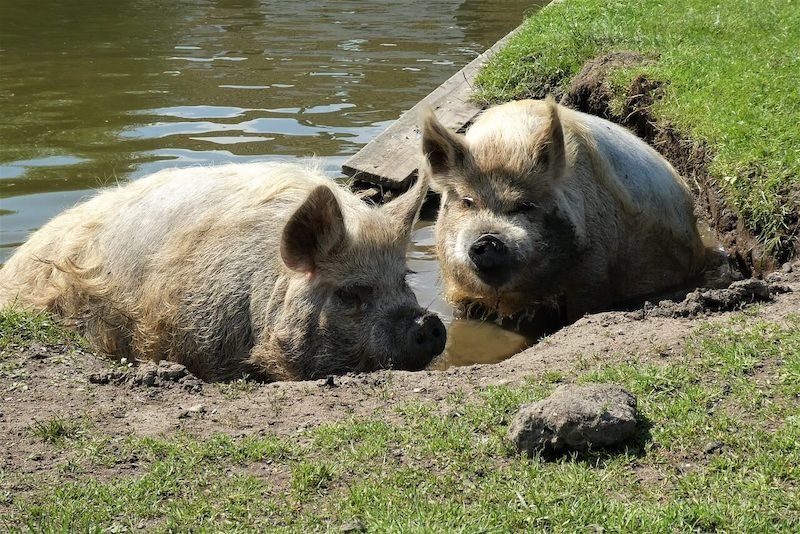
Tips and Tricks for Kune Kune Success
As you embark on your Kune Kune pig-keeping journey, here are a few additional tips and tricks to help ensure your success:
- Start with a Reputable Breeder: When purchasing your Kune Kunes, be sure to work with a reputable breeder who can provide you with healthy, well-socialized pigs. Look for breeders who are members of the American Kune Kune Pig Society or the Kune Kune Pig Breeders Association.
- Provide Plenty of Enrichment: Kune Kunes are intelligent animals that thrive on mental stimulation. Provide them with toys, such as balls or logs to root in, and rotate these items regularly to keep things interesting.
- Consider Fencing Carefully: When fencing your Kune Kune pasture or paddock, be sure to use materials that are sturdy and durable. Hog panels or welded wire fencing are excellent choices, as they are strong and long-lasting.
- Embrace Their Quirks: Kune Kunes are known for their unique personalities and quirky behaviors. Embrace these traits and enjoy the entertainment they provide, from their playful antics to their gentle snuggles.
- Connect with Other Kune Kune Enthusiasts: Join online communities and attend local livestock events to connect with other Kune Kune enthusiasts. These connections can provide valuable support, advice, and even opportunities to expand your herd.
By following these tips and tricks, you’ll be well on your way to a successful and rewarding Kune Kune pig-keeping experience on your homestead.
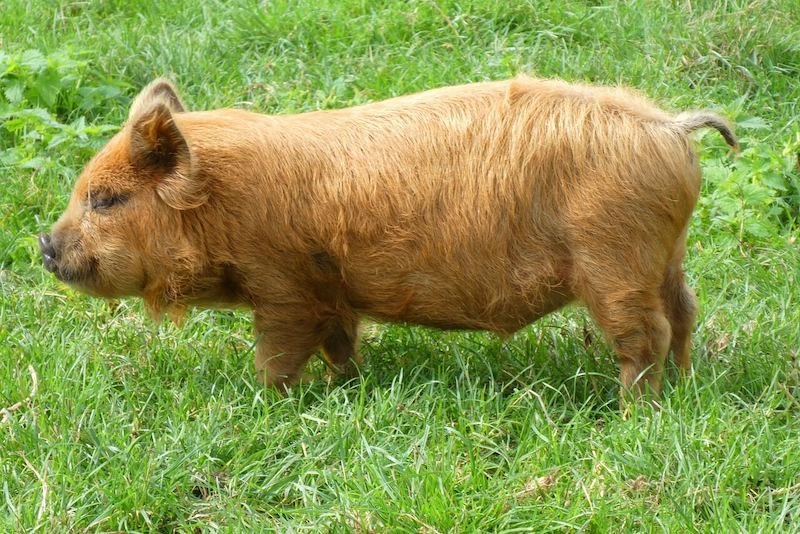
Frequently Asked Questions about Kune Kune Pigs
Q: How much space do Kune Kunes need?
A: Kune Kunes can thrive in a relatively small space, with a minimum of 200 square feet per pig for a paddock or pen. However, they also enjoy access to pasture for grazing and rooting, so aim for at least an acre of fenced pasture for a small herd.
Q: Can Kune Kunes be kept with other livestock?
A: Kune Kunes are generally docile and can be kept with other livestock, such as goats, sheep, or poultry, provided that proper introductions are made and there is enough space for all animals to coexist comfortably.
Q: How often do Kune Kunes need to be fed?
A: Kune Kunes should be fed twice daily, with a balanced diet of pasture, hay, and grain. Adjust the amount of feed based on the pigs’ age, size, and activity level, and always provide access to clean, fresh water.
Q: Do Kune Kunes need to be bred every year?
A: No, Kune Kunes do not need to be bred every year. Sows can safely be bred every 12-18 months, with a gestation period of approximately 114 days.
Q: How long do Kune Kunes live?
A: With proper care and nutrition, Kune Kunes can live for 12-15 years, making them a long-term investment for your homestead.By addressing these common questions, you’ll be well-equipped to make an informed decision about adding Kune Kune pigs to your homestead and providing them with the best possible care.
Conclusion
The Kune Kune pig is a truly unique and charming addition to any homestead, offering a host of benefits that make them an absolute must-have for those seeking a well-rounded farm experience. With their friendly temperament, compact size, and versatility, Kune Kunes are the perfect choice for homesteaders looking to add a new dimension to their land.
By following the tips and advice outlined in this guide, you’ll be well on your way to successfully incorporating Kune Kune pigs into your homestead, from providing them with proper housing and nutrition to ensuring their health and well-being. So, why not consider adding these delightful creatures to your farm today? Your Kune Kunes will thank you with a lifetime of love, laughter, and delicious pork!



